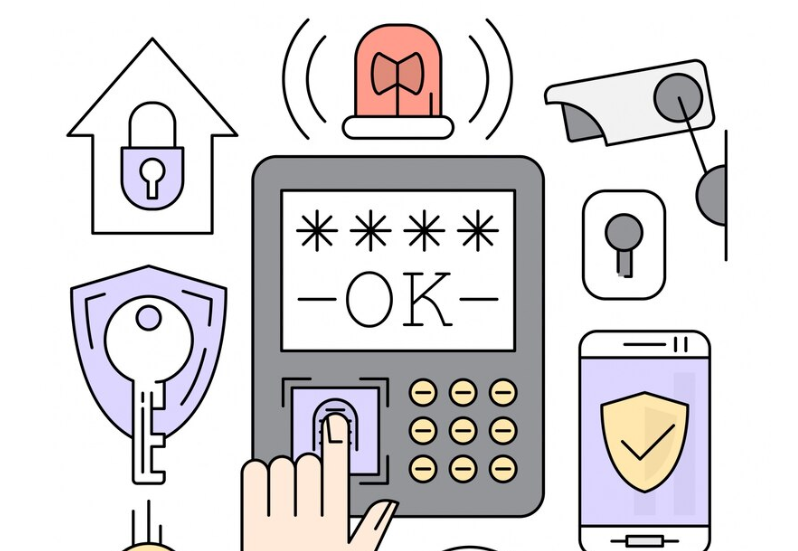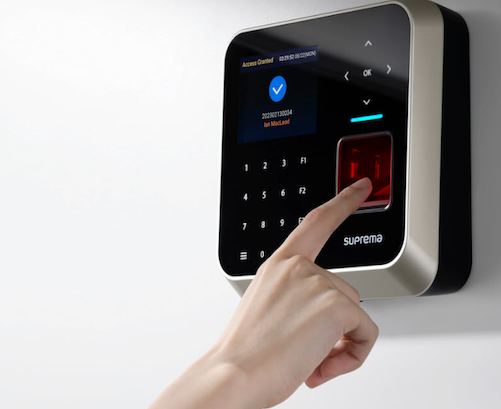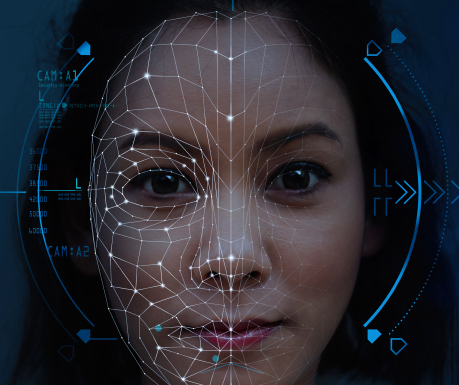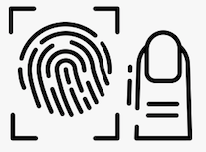Biometric Access Control
The automated recognition of individuals based on their biological and behavioral characteristics
Description

A biometric access control is a security technology that uses unique biological or behavioral characteristics to identify and authenticate individuals before granting access to a restricted area, device, or system.
Feature of the biometric access control
Unlike traditional access methods like passwords, PINs, or ID cards, biometric systems
rely on physical or behavioral traits that are inherently unique to each person.



scans the unique patterns of ridges and valleys on a person’s fingerprint to authenticate their identity

Measures the shape, size, and length of a person’s hand or palm




No PINs
What is biometric access control?
A biometric access control uses unique physical or behavioral characteristics to verify a person's identity, offering a secure and convenient method for access control. It typically employs fingerprints, face recognition, iris scanning, or voice recognition to authenticate users.
Key Features:
Accuracy: Biometrics provide high accuracy since they rely on distinct physical traits, reducing the risk of fraud or impersonation.
Convenience: Users don’t need to remember passwords or carry tokens, as biometric data is always with them.
Security: Biometrics are difficult to replicate, offering a strong defense against unauthorized access.
Non-transferable: Unlike keys or passwords, biometric traits cannot be shared or stolen easily.
Integration: These systems can integrate with other security technologies like multi-factor authentication (MFA) and access control systems for enhanced protection.
Biometric access control are widely used in areas like government buildings, data centers, smartphones, and financial institutions due to their high security and user-friendly nature.



